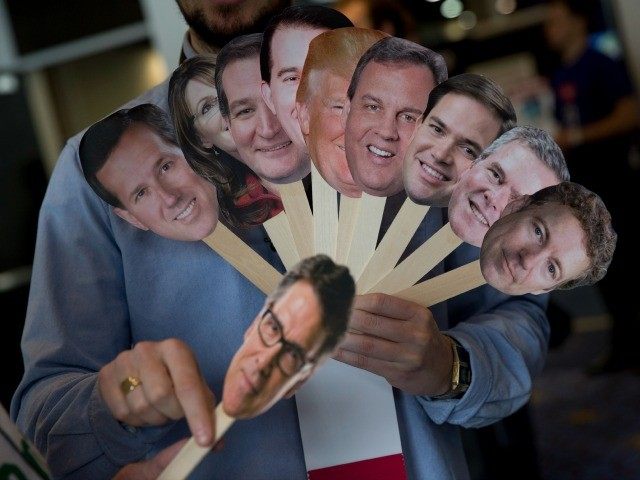In his Politico column this week, pundit Roger Simon tells GOP presidential candidates that backing religious liberty is political suicide, so he counsels them to drop all association with religious conservatives unless they wish to “choke off their chances for the White House.”
By supporting religious freedom, Simon says, “the potential candidates risk alienating the rest of the nation.”
At first blush, Simon would seem to be correct, judging by the numbers. A Reuters/Ipsos poll this week found that a majority of Americans believe businesses “should not be allowed to refuse services based on their religious beliefs” in the wake of controversies in Indiana and Arkansas over gay rights and religious freedom.
The survey results, Reuters says, “suggest a split over the issue between Americans and some of the politicians who represent them,” which is exactly what Simon proposes.
A closer look, however, reveals that this might not be the whole story. Both in polling and in punditry, words mean everything. And in this case both Simon and Reuters failed to make the necessary distinctions that matter deeply to many Americans.
Roger Simon, in fact, is more than imprecise in his essay—he is willfully disingenuous. He sums up Indiana’s RFRA as saying: “The law would allow businesses to discriminate against homosexuals.” This is patently false. No one, and no law, is suggesting that businesses should be able to discriminate against people.
Simon goes on to say that you “can’t put up a sign at your lunch counter that says ‘Whites Only’ because it is your personal or religious belief that the races should be separate. But if you believe the Bible says homosexuality is a sin, should you be able to refuse service to homosexuals?” Of course not. But Simon’s straw man has nothing to do with the real issue at hand and Simon should know it.
If Christians refused to serve sinners, they would quickly go out of business.
No one is saying that religious belief should be an excuse for discrimination. No one should be able to refuse service to others—blacks, Jews, gays, Jehovah’s Witnesses, women, Catholics, neo-Nazis, baby seal killers, or even Democrats—for any reason whatsoever. But nor should anyone be coerced into participating in actions he or she considers to be morally wrong.
Though more nuanced, the Reuters poll substantially follows Simon’s distorted logic, asking people whether businesses “should have the right to refuse services to certain people or groups based on religious beliefs.” That is not the question Reuters should have asked, and the answer reveals very little about religious liberty. So we still don’t know where most Americans stand vis-à-vis the right of citizens to opt out of sinful behavior.
Interestingly, Courtney Hoffman, a gay woman in Indiana, seems to see what eludes the likes of Roger Simon. She came out publicly in favor of religious liberty, showing public support for Christian-owned Memories Pizza and its decision not to cater gay weddings. Her logic was as straightforward as it was simple.
“My girlfriend and I are small business owners, and we think there is a difference between operating in a public market space and then attaching the name of your business to a private event,” Hoffman said. “Like, if we were asked to set up at an anti-gay marriage rally, I mean, we would have to decline.”
Christians believe that they should avoid “cooperating in evil,” a technical term that refers to more than just tolerance or respect, and involves active participation. Serving homosexuals or white supremacists or abortionists in one’s restaurant does not imply agreement with their extracurricular activities. It simply recognizes the essential dignity of every person and the right to be treated the same as everybody else. No one should be turned away, regardless of their beliefs or practices.
By the same token, however, no one should be made to “cooperate” in activities that they believe to be morally evil.
The Catechism of the Catholic Church tells adherents of that religion that “we have a responsibility for the sins committed by others when we cooperate in them” and suggests several ways that this may come about—such as by participating in them or by ordering, advising, praising, or approving them.
America has a grand tradition of conscientious objection, exempting people from activities that they believe to be morally wrong. No pro-life doctor should be coerced into performing an abortion, no Quaker should be coerced into fighting on the front and no Christian should be coerced into supporting same-sex marriage.
Sometimes doing the right thing does not prove to be politically expedient, and it takes integrity and heroism to do it anyway.
Roger Simon hasn’t shown this to be one of those cases.
When push comes to shove, Americans are against discrimination, but we are also against bullying religious people into acting against their conscience.
Follow Thomas D. Williams on Twitter @tdwilliamsrome

COMMENTS
Please let us know if you're having issues with commenting.